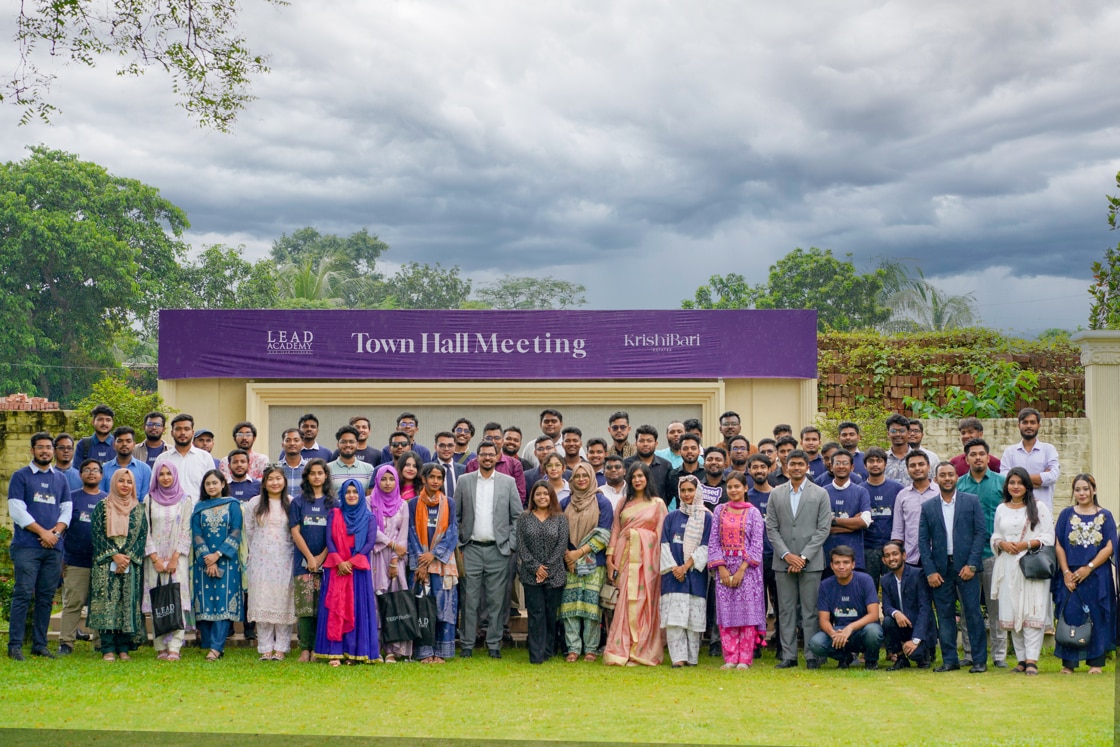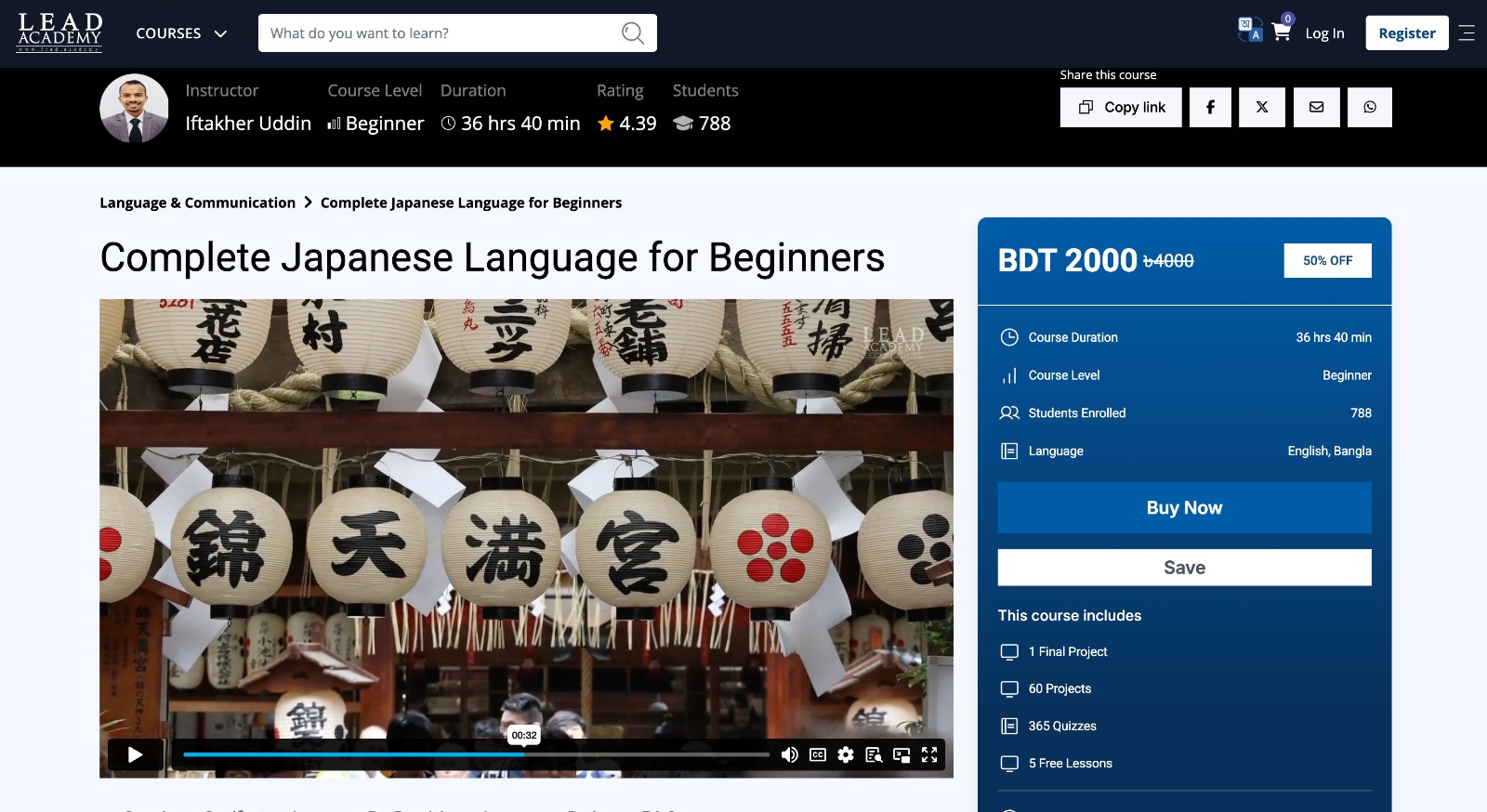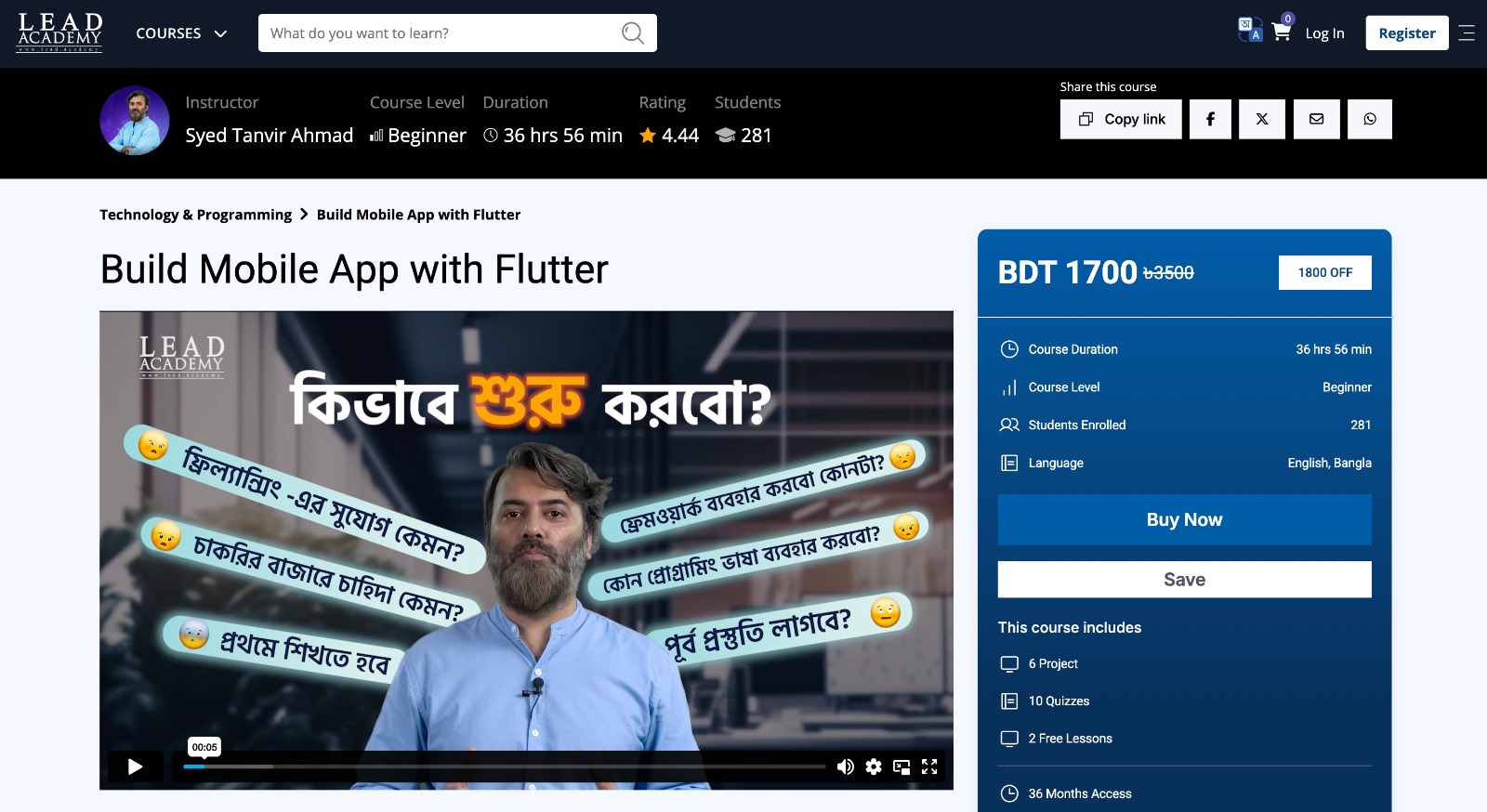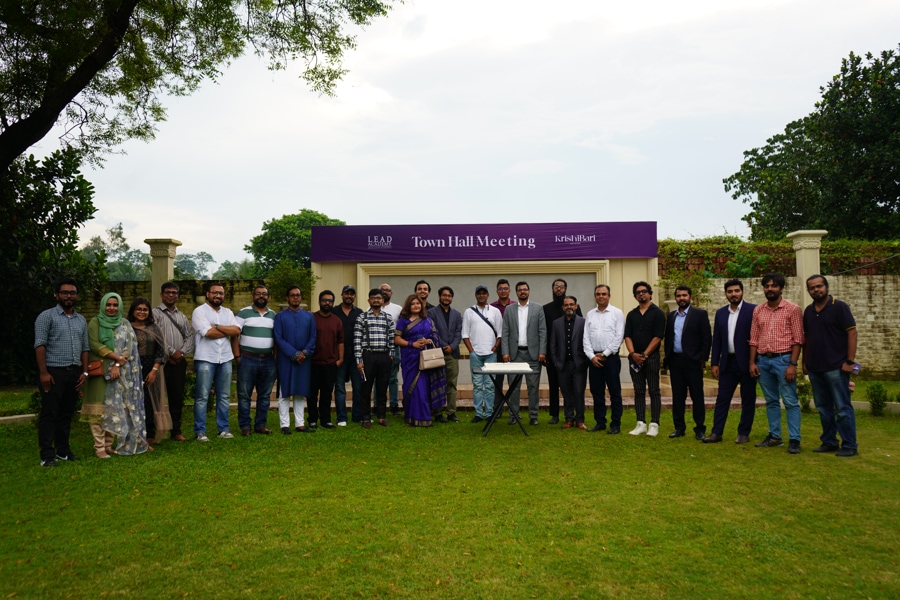
When philosopher Bertrand Russell suggested that the purpose of education is to build character, he was articulating something profound about learning that many modern online platforms tend to overlook. Education, at its deepest level, isn't just about acquiring information or even skills, it's about transformation. It's about discovering our capabilities, expanding our perspective, and becoming a more complete version of ourselves.
But this lofty aspiration exists alongside more immediate, practical needs. In today's economy, real-world success also means being able to translate learning into tangible outcomes: landing that first job, earning a promotion, starting a business, or simply mastering skills that make you more valuable in your field.
The challenge facing online education today is that many platforms optimize for neither of these definitions of success. They measure engagement metrics, completion rates, and satisfaction scores but don’t pay much attention to whether students are actually growing as people or advancing in their careers.
Consider Mahmud's (name changed) story. He completed three online marketing courses last year, earning certificates for each. But when he applied for digital marketing roles, employers barely glanced at his credentials. The courses promised career transformation, but Mahmud found himself stuck in the same position, with the same skills gaps, wondering why months of study hadn't translated into any form of real-world success, neither personal growth nor professional advancement.
Mahmud's experience reflects a fundamental disconnect that pervades the online education landscape. Students complete modules, pass quizzes, and earn certificates, but struggle to apply their learning in meaningful ways. They don't grow in confidence, they don't develop new capabilities they can trust, and they certainly don't see career advancement.
This dual challenge, achieving both personal transformation and practical outcomes, is precisely what Lead Academy, a Dhaka-based edtech startup, set out to solve. But instead of following the conventional playbook of making content more engaging or platforms more gamified, the company began with asking a fundamentally different question: What if we designed courses to deliver both forms of real-world success?
Lead Academy's founders, Ashfaq Zaman and Sharif Ahmed, recognized that meaningful education must serve both dimensions of human development. The character dimension represents true education that builds confidence, critical thinking, and self-awareness. Students discover capabilities they didn't know they possessed. They learn to approach problems systematically, communicate ideas clearly, and persist through challenges. This is what philosophers and thinkers classically wanted. Education as a tool for becoming a more capable, thoughtful, and resilient human being.
The capability dimension represents practical education that translates into measurable life improvements. Students gain skills that employers value, knowledge that solves real problems, and competencies that open new opportunities. Success here is measured in job placements, salary increases, business launches, and career advancement.
Many online education platforms inadvertently optimize for neither dimension. They create experiences that are neither transformative nor practically valuable. Students complete courses without growing as people or advancing professionally.
Lead Academy's insight was that these two dimensions aren't separate, they're synergistic. The most effective learning experiences build both character and capabilities simultaneously. When students tackle real-world challenges, solve actual problems, and see their efforts create tangible value, they don't just learn skills, they develop confidence, resilience, and a deeper understanding of their own potential.
When Ashfaq Zaman returned from the UK to Bangladesh, he identified a persistent disconnect between academia and industry, leaving graduates under-prepared for both the practical demands of employers and the personal challenges of professional life. After training over 1,500 university faculty members across Bangladesh, he watched graduates enter the workforce unprepared not just technically, but emotionally and intellectually.
Universities taught theory without context. Students memorized concepts without understanding their application. Graduates earned degrees but lacked both the practical skills employers needed and the confidence to navigate professional challenges independently.
The revelation was both simple and revolutionary: Lead Academy decided to work backwards from both definitions of success. Every course begins not with content creation, but with outcome definition, both the practical skills students need and the personal growth they should experience.
Instead of asking "What should we teach?" Lead Academy starts with "What should students be able to do when they finish, and who should they become through the learning process?" This dual focus transforms how every aspect of education is designed and delivered.
Lead follows a five pillars approach to designing courses that ensure its courses help achieve both of the above mentioned goals.
Lead Academy's skills selection process begins with identifying market demand before anything else. As a Lead Academy representative explains: "First, we select a topic for which we want to offer a course. For highly sought-after courses, like Chinese, Japanese Language learning, or other courses such as app development, we first identify several instructors."
Consider its Complete Japanese Language for Beginners course, courses like Certified Pastry Baking or Corporate Sales Growth with Key Account Management. These are skills that have demand in the market but also teach skills that students can apply.

The decision to offer Japanese wasn't based on general language learning trends, but on specific opportunities for Bangladeshi professionals. Japan's growing investment in Bangladesh's infrastructure projects, manufacturing sector, and the increasing demand for skilled workers in Japanese companies created a clear market need for Japanese language proficiency.
The course responds to real economic opportunities. Japanese companies operating in Bangladesh need local employees who can communicate effectively, and Bangladeshi professionals with Japanese language skills command higher salaries and better career prospects. Rather than creating courses based on what they think students might find interesting, Lead Academy identified a topic based on genuine market demand and career advancement potential.
This market-first approach ensures that students aren't just learning interesting subjects, they're developing skills that employers actually seek and are willing to pay for. The Japanese course addresses a concrete gap between supply and demand in Bangladesh's evolving economy.
Lead Academy's instructor selection process is rigorous and systematic. As a representative details: "Our initial step is negotiation with these instructors. After negotiating, we select one instructor from those we've identified. We always try to ensure that our instructor's real-life experience is reflected in our courses, which is why we prefer more experienced instructors."
Lead’s Labour Law Masterclass: Guide to Rights and Responsibilities shows this commitment to experience-based instruction. Labour law is a complex subject that requires not just theoretical knowledge, but practical experience with real cases, regulatory changes, and workplace situations. The course instructor must have hands-on experience navigating Bangladesh's specific labour regulations, dealing with workplace disputes, and understanding how legal principles apply in actual business contexts.
The selection ensures that "our instructor's real-life experience is reflected in our courses." This means students learn from someone who has actually handled labour disputes, advised companies on compliance issues, and understands the practical implications of Bangladesh's labour laws in real workplace scenarios. When the instructor discusses employee rights or employer responsibilities, they're drawing from actual cases and situations they've encountered, not just textbook examples.
This approach is particularly crucial for labour law, where theoretical knowledge without practical application can leave students unprepared for the complexities of real workplace legal issues. The instructor's credibility comes not from academic credentials alone, but from demonstrable success in solving the exact problems students will face in their careers.
Lead Academy's curriculum development is a collaborative process between industry experts and their academic team. As the company’s representative explains: "Subsequently, we work with the instructor to develop the module. The instructor develops the module, and our academic team assists them in this process."
The company’s Certified VAT Management and Application Program demonstrates this collaborative approach perfectly. VAT regulations are complex, constantly changing, and require both theoretical understanding and practical application skills. The curriculum must cover not just the basics of VAT calculation, but real-world scenarios that businesses face daily.
The instructor develops modules based on actual VAT challenges they've encountered, from complex input tax credit calculations to dealing with VAT audits and compliance issues. Lead Academy's academic team then assists in structuring this practical knowledge into a learnable format, ensuring that complex regulatory concepts are presented clearly and systematically.
The curriculum design also includes continuous improvement: "Additionally, every now and then, perhaps quarterly or half-yearly, we speak with the instructor to upgrade the course if needed. This is important because in some areas, like technological matters or VAT/taxes, regulations and information change periodically."
This is particularly crucial for VAT management, where regulatory changes can significantly impact business operations. When Bangladesh's VAT laws change or new compliance requirements emerge, Lead Academy doesn't wait for the next course creation cycle. The company "consults with the instructor, and if necessary, we reshoot or screen record new content and then upgrade the course."
This ensures that students always learn current, applicable VAT procedures rather than outdated information that could lead to compliance problems in their professional work. The curriculum remains a living document that evolves with the regulatory environment.
Lead Academy's course delivery involves a sophisticated production and quality assurance process. The representative details the systematic approach: "Once the development is complete, we have a separate team review or process the entire module. After processing, we move on to the shooting phase. The shooting takes place over several sessions; it could be two weeks or more."
Lead’s Build Mobile App with Flutter course shows this production quality commitment. Mobile app development requires hands-on coding, visual demonstrations, and step-by-step technical guidance that must be crystal clear for students to follow successfully.

The multi-stage production process Lead maintains ensures quality: "After the shooting is done, we hand over the material to our panel of editors. The editors begin editing our courses. Once the editing is complete, our Quality Control team thoroughly reviews the entire edited version."
For a technical course like Flutter development, this quality control is crucial. Code demonstrations must be error-free, screen recordings must be clear and properly paced, and complex programming concepts must be broken down into digestible segments. The QC team verifies that students can actually follow along and build functional mobile apps, not just watch passive demonstrations.
The quality extends beyond internal review: "Once the course is on the website, we have affiliations with some volunteer organizations. These organizations, acting as third parties, neutrally check our courses again. If they provide any feedback, we try to implement it."
This third-party validation is particularly valuable for technical courses, ensuring that the Flutter curriculum produces students who can actually develop mobile apps that work in real-world scenarios, not just complete exercises that work in controlled environments. The delivery system serves the learning goal rather than creating impressive-looking content that doesn't actually teach practical skills.
Lead Academy's approach to outcome assurance involves multiple layers of verification and continuous improvement. Lead’s Microsoft Power BI Online Course exemplifies the company’s outcome-focused approach.
Power BI is a highly practical skill with immediate workplace applications. Students either learn to create effective business dashboards and data visualizations, or they don't. There's no middle ground where partial knowledge is useful.
This makes outcome measurement straightforward: students must demonstrate they can actually use Power BI to solve real business problems, create meaningful reports, and present data insights that drive decision-making. The blockchain-verified credentials system allows employers to verify specific Power BI competencies rather than just course completion.
The platform's commitment to staying current is evident in their update process: "In such cases, we consult with the instructor, and if necessary, we reshoot or screen record new content and then upgrade the course." This is particularly important for software like Power BI, where Microsoft regularly releases updates and new features that professionals need to know.
This systematic approach has resulted in Lead Academy building a comprehensive educational platform serving 55,000 learners with a 60% course completion rate, significantly higher than typical MOOC completion rates, and demonstrable job placement success.
The company’s outcome measurement system includes skills-based assessment through practical demonstrations, blockchain-verified credentials for specific competencies, job placement tracking, and long-term career impact monitoring. Students don't just learn about Power BI, they become employable business intelligence professionals who can contribute immediately to their organizations' data-driven decision making.
The true power of Lead Academy's approach emerges when all five pillars work together as an integrated system. Market-identified skills are taught by industry experts through carefully designed curricula, delivered via quality-assured technology, and verified through rigorous outcome measurement.
Consider the approach as a complete system: the company identifies what the market actually needs, finds instructors who have solved those exact problems, collaborates to create curricula that bridge theory and practice, produces high-quality learning experiences, and measures success by real-world impact rather than vanity metrics.
This systematic approach ensures that students don't just learn about topics, they become competent practitioners who can apply their knowledge immediately in professional contexts. The learning experience builds both practical capabilities and personal confidence simultaneously.
Lead Academy's comprehensive approach addresses not just individual learning needs but systemic challenges in Bangladesh's education and employment landscape. The platform's success creates positive feedback loops that benefit the entire ecosystem.
For employers, the system provides reliable access to skilled talent with verified competencies, reducing hiring risks and training costs. For students, it creates clear pathways from education to employment, with skills that are immediately applicable and valued by employers. For society, inclusion of underserved populations expands the talent pool and creates more equitable opportunities.
The platform's partnership approach amplifies this impact. By working with NGOs, schools, and corporations, Lead Academy reaches populations that traditional education systems often miss. Their work in coastal areas and refugee camps doesn't just provide individual opportunities—it builds capacity in communities that need it most.

What's particularly interesting about Lead Academy is the broader pattern it represents. The company chose to compete on quality instead of price and convenience. This choice forced it to develop different capabilities: systematic quality assurance instead of viral marketing, outcome measurement instead of engagement optimization, expert networks instead of content volume, verification systems instead of completion certificates.
These capabilities are harder to build but more defensible once established. They create sustainable competitive advantages that can't be easily copied.
Engagement metrics are easy to game but don't correlate with learning. Outcome metrics are harder to measure but create sustainable competitive advantages. Content scales through replication, quality scales through systematic processes and intelligent automation. Many EdTech companies try to scale content and hope quality follows but it doesn't work.
Employers don't trust online credentials because most don't verify actual competence. Platforms that solve the verification problem can charge premium prices and create network effects.
In a world where the gap between education and employment continues to widen, Lead Academy offers a different path forward. Not through revolutionary technology or disruptive business models, but through the simple yet powerful idea of designing education backwards from the outcomes that actually matter.
For students like Mahmud that could make all the difference between earning certificates and building careers. The question isn't whether online education can work, but whether educators are willing to do the hard work of making it work for real people with real aspirations.
Lead Academy's answer is clear: education succeeds when it serves both the character and the capabilities the modern economy demands. Everything else is just vanity.
